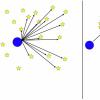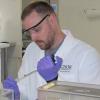QuestforLife, thank you for replying.
My perspective is that medicine no longer has any realistic future even over a medium term time horizon.
I think medicine will probably be soon seen as possibly the worst career path imaginable.
For pediatrics, this could rapidly manifest as that specialty would be the closest to the wave of change brought about by genetic selection.
My suspicion is that this bleak future for medicine is likely a prime reason for the abandonment of medicine by men.
Typically it is never a good sign whenever a profession feminizes. It often means that high end income potential is no longer believed to be present.
Given the potential of genetics to largely prevent all illness, it is not difficult to imagine a future in which doctors were mostly unemployed.
It is not difficult to understand the logic.
Almost all human disease is related to genetic variants-- be they strong single dominant or recessive variants or more diffuse polygenic variants.
The human genome has been unlocking for the last decade and now with full genome sequencing approaching $100, the entire unlock is now
highly likely to occur within the next decade. We will know essentially everything that causes illness and health in humans over the next 10 years.
It is remarkable.
From there it is then a simple matter of embryo selection and/or embryo editing. As you noted there is a component of mate selection involved, though
this merely amplifies selection yet more.
As I noted in my previous post I have had family members who lived near maximal life spans with no obvious medical problems. For example, one of my grandmothers
lived almost to 100 years of age and NEVER had chronic illness. She NEVER went to the doctor -- NEVER took any pills and was completely healthy for her entire life.
If everyone were like my grandmother, then there would essentially be no medical system needed: Health care would become redundant. With genetic engineering such
an outcome probably will be within reach of all.
Of course, what happens in life is that 10% of the population has 90% of the medical problems. It is not difficult to imagine that the community will have a strong incentive
to offer those with such overwhelming burdens of illness reproductive options that would reduce such expense. Even for those with high potential medical burden there will
likely be relatively easy workarounds. Strategic mate selection and intense embryo selection would dramatically change genetic risk in the community.
The problem here as often occurs is that we are so locked into our present reality that it is not easy to see the wave of change approaching. It is only within the last year or two
that the human polygenic genome has unlocked. This knowledge will clearly have dramatic consequences. The public is now increasingly aware of the potential involved. It seems
inevitable that we are now at the point of extreme social change related to genetics. The technology is relatively cheap and is already quite powerful. We are living in a time of
truly profound genetic change, however to a casual observer locked into living day to day this seems almost imperceptible. If one were to time travel to the year 2100, this dramatic
change would be much much more obvious.
I am also starting to wonder at what point the broad public will lose its sense of solidarity for those with medical problems. In the past, natural reproduction was a genetic lottery.
As you noted there is some degree of control with the ability to choose a mate, yet once a mate is chosen there is an enormous range of genetic outcomes that are possible
for any offspring. Given the extreme level of polygenics for most human traits almost any outcome might occur with some probability. Strangely, it is not typically understood that
when two parents of high IQ have children, the expectation is that their children will have lower IQ than the average of the parents. For those of lower IQ, the expectation is that their
children will be above the average IQ of their children. Natural reproduction is very much like rolling a roulette wheel in deciding how your children will turn out. No sane parent would
ever choose to reproduce in such a manner, though until now that is how it has been done. Current technology will allow engineered outcomes.
The loss of solidarity in the public arises when some parents decide that they will simply continue to roll the roulette wheel. They will let any ole outcome happen -- basically what we have
today. Whatever random roll of the dice might bring, will be what they accept. Of course, they will then want others to pay whatever medical, prison, or other expenses that might arise.
Others will not be happy with such an arrangement. Especially those who carefully considered the reproductive technologies available and chose an embryo that would have none of the
above problems. Further, even now those who have various medical problems cannot be treated appropriately given the extreme expense of modern medicine. There are those who
pose such extreme medical expense to the community that they have been denied access to medically necessary (sometimes even for survival). So, there already exists medical ethical
challenges with natural reproduction: assuming such risks could then deprive life saving medicine for those in extreme need.
In terms of strategies for mate selection, modern technology allows us to go beyond skin deep attraction. It is now genotype over phenotype. It is remarkable to realize how much of the social
landscape has now become so largely non-relevant. The physical world as some sort of genetic obstacle course is truly laughable. Those who are more insightful will recognize that it is much more
important it is to think in terms of genetic synergy of mates than outward phenotypes. We will clearly see this play out over the next few decades. Those who continue to think in
terms of phenotype will become hopelessly outcompeted.
With the polygenic genome yes it is rapidly unlocking, most of the headline type medical problems have had million person GWAS studies. However, in my particular experience, we can already see how all of our medical problems are encoded in our genomes. We already know how to select out all of our medical problems.
The important point of the above discussion is to realize that once the many thousands of genetic illnesses are selected against, then we will only have the core medical problems that are common to all humans
remaining. This would then allow us to potentially make very rapid medical progress. There might then only be one disease left -- aging. All research resources could then be devoted to solving this one problem.
Humans will be like a car factory in which all the cars are the same instead of like today where every car is a one off that uses its own unique propulsion system. As it is now there are thousands and thousands
of illnesses each competing for scarce research dollars. It could easily take centuries to cure all of these problems. With genetic selection all of these illnesses could be selected against in a single generation.
We are right at the moment where this has become possible.
Edited by mag1, 13 August 2023 - 08:26 PM.


















































